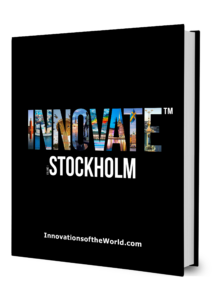Most people know the statistics: most new businesses can’t pay a market salary and stay profitable within five years. Funding dries up. The idea wasn’t strong enough. There was no real product–market fit. On paper, the odds look discouraging. So why would anyone step into that arena? For me, the answer is simple: because entrepreneurship is about more than work, more than providing for yourself or your family — it’s about testing yourself against the unknown.
Entrepreneurship isn’t for everyone. It demands comfort with uncertainty, the courage to take risks without being reckless, and the humility to understand yourself before you can lead others. Over the years, I’ve seen that the best entrepreneurs aren’t just problem-solvers, they study and question themselves. They ask: What do I stand for? How do I want to be perceived? Does my self-image align with the world around me? Those who keep asking, evolving, are the ones who endure.
Selling is part of the game. Too many founders hope their idea will sell itself. It won’t. If you’re on your own — or early in your entrepreneurial journey — you are the salesperson. No one else will carry your vision to customers. And customers are the only real validation. Without them, you don’t have a business. You have a thought on paper!
That’s why preparation matters. Before you go all in, break down your idea and stress-test it. Start by formulating a few key hypotheses, your sharpest assumptions about the problem, the solution, or how people will pay for it, and then test them on real customers. One of the best tools I know is the pitch deck — not just for investors, but for yourself. Done right, it forces you to crystallize the essentials: the problem, the solution, the market, and how you’ll make money. Even a simple budget with revenue, costs, and profit projections can be a reality check. A good deck isn’t about design; it’s about clarity. It shows whether your idea can hold before you commit everything.
Purpose plays a role too. I’ve seen founders build purely for profit and others chase only their vision. Both paths are dangerous. Too much focus on money, and you lose energy and trust. Too little, and you won’t make it. The truth lies in balance: a business idea must solve a real problem that you are passionate about — and it must sustain itself financially.
Ambition also matters. Do you want a small company to sustain your lifestyle, or do you aim for international growth? One path grows organically, the other requires investors, board demands, and the pressure of scaling fast. Clarifying ambition early shapes every decision ahead.
The right partners can make — or break — you. Shared values matter as much as complementary skills. Talk about risks, expectations, and goals early, before you even register the company. And never forget: the first months are about sales, not administration. Get customers — paying customers. That’s what builds momentum.
Finally, no one succeeds alone. Even the strongest entrepreneurs need sounding boards, mentors — people who dare to say the uncomfortable truths and offer perspective when you’re lost in the weeds. A strong network is often the difference between stagnation and growth. In the end, entrepreneurship isn’t about the idea at all. The greatest venture you create is the person you become.













